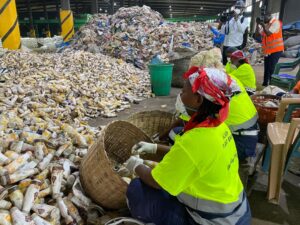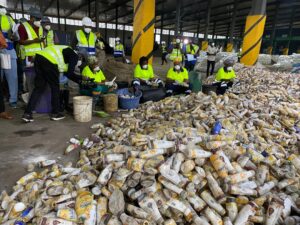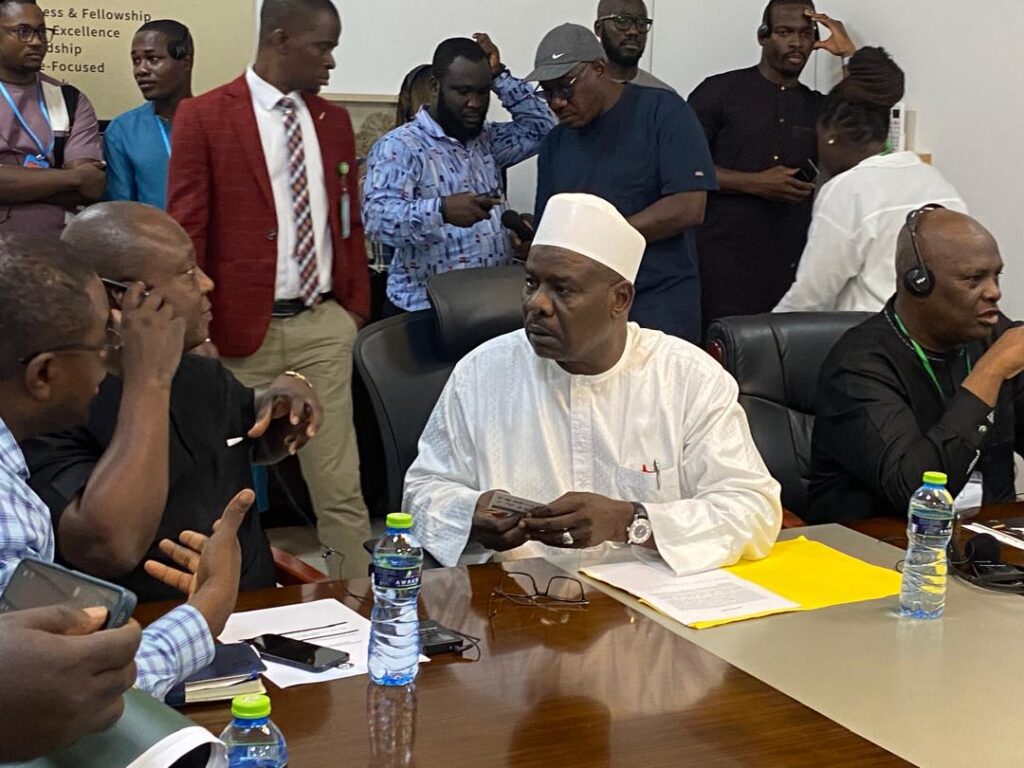By Gloria Ikibah
Members of the Parliament of Economic Community of West African States (ECOWAS), are proposing legislations for member states to establish waste management plant.
Chairman, Committee on Agriculture and Co-Chairman, Joint Committee on Agriculture, Environment and Natural Resources/Energy, Mining/Infrastructure of the Parliament, Senator Mohammed Ali Ndume, disclosed this on Wednesday at the ongoing delocalized meeting in Winneba, Ghana, with the theme ‘Plastic Waste Management: Challenges and Prospects in Implementing Community Policies.’
The committee had undertaken a field tour of a plastic waste landfill and treatment site in Accra, Accra Compost Recycling Plant, a subsidiary of JOSPONG Group of Companies, as part of its efforts to find lasting solutions to the menace of environmental pollution occasioned by poor waste management.
Senator Ndume said there was the need for a harmonized legislation or policy in the Sub-region to replicate such plants across ECOWAS sub-region.
He acknowledged that members of the committee have learnt from the initiative and the imperative of partnership between governments and private sector players.

Managing Director, Compost Recycling Plant, Michael Tuwor, earlier informed the committee that the company enjoys the support and partnership of the Ghanaian government, which has increased the company’s capacity to collect and manage waste effectively.
With over 200 workers, Tuwor noted that about 2,000 tons of waste were processed daily into pebbles, organic manure or packaged for both local and foreign plastic industries, for plastic wares or production of sport wears.
He further revealed that over $20 million revenue was generated annually in addition to $8 million support from the government annually.
The MD specifically noted that without government support, it would have been practically impossible for the company to survive due to high cost of production and other factors.

Also, Vice Chairman, Committee on Energy and Mining and member of Sierra Leone delegation, Hon. Saa Emerson Lamina, said he was inspired by the activities of the plant and vowed to sponsor a bill in his country towards finding lasting solution to the issue.
He said: “What I have realized recently was the implications of urbanization – the movement of youths from rural to urban centres. So, how can we make a reverse if we cannot give them the opportunity back home?
“We have just toured the plant and have seen the process of turning waste to wealth. I am inspired and I urge this company to replicate the plant in other West African countries. It will help us in the parliament to make uniform, generic legislation or policy on how to effectively manage waste in the Sub-region.
“Noting that government cannot take 100 per cent cost of a recycling process, Lamina joined in endorsing a public, private partnership that Ghana adopted, stressing that it will go a long way in the overall development of the Sub-region”.
Speaking on the delay by African countries to effectively manage waste, he said: “You know that even the Western countries did not get where they are in one day. It is good news for us. We have seen this technology and we can build on it and grow it so that we can take our people out of decadence and rot.”
Chairman, Committee on Infrastructure, Hon. Mamadou Sako, also proposed the support of the private sector on waste management.
According to him, the visit to the plant was necessary to overcome the challenges of environmental pollution, even as emphasized the need for requisite infrastructure.
While congratulating the management of Accra Compost Recycling Plant, Hon. Sako admitted that a lot has been learnt on how to generate income from waste while keeping the environment safe to humans.
Members of the joint committee said there were prepared to engage their respective countries on the need to partner the private sector in taming the tide.
They also called on waste management agencies from across ECOWAS to enforce its laws as a way to control citizens’ negative attitude towards waste disposal.

